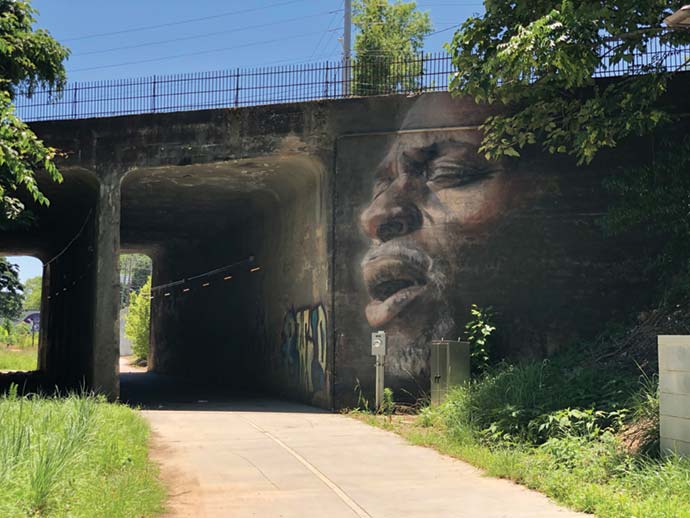Within one hour of each other in June, the City of Atlanta launched its Accelerate Southside program for minority-owned businesses, and the Miami City Commission approved a plan for the Magic City Innovation District in the city’s historic Little Haiti neighborhood.
It reminded us of a meeting not long ago where we asked a major Southern city’s economic development agency why the office of their prominent black mayor never responded to our requests for an interview for our publication, as we have done with mayors, governors and national leaders around the world for 65 years. They pointed to a lack of black faces in our publication.
Where does that sort of circular reasoning end? It ends here. This summer we explored African-American-led companies and communities throughout seven states in the Southeast. We found where historically underserved neighborhoods are welcoming new corporate investment — or hoping to. We asked about the new federal Opportunity Zone program’s potential to bring on real opportunity or real boondoggles. We talked to global, national and local experts about the role of the Southeast’s Historically Black Colleges and Universities (HBCUs) in economic development. And we listened to minority-owned business leaders tell us about the keys to growth, an entrepreneur mindset and cultivating the sort of shared prosperity championed by nationally prominent organizations such as Citi, Brookings and others.
What we found already would fill a book with compelling stories. Instead, we will launch an online series this fall called “Minority Report” documenting black community and business successes and challenges across the Southeast and beyond, as individuals and institutions confront the vestiges and, in some cases, the outright practice of racism.
One common image emerged from dozens of independent conversations: the seat at the table. So perhaps it’s only right that Business Roundtable in August announced a new way to frame the purpose of a corporation, and welcomed the signatures of 181 CEOs on the statement that for the first time extended the definition beyond shareholders to affirm that corporate social responsibility is a real thing, with benefits and costs that can accrue to customers, employees, suppliers and communities too.
“The American dream is alive, but fraying,” said Jamie Dimon, chairman and CEO of JPMorgan Chase & Co. and chairman of Business Roundtable. “Major employers are investing in their workers and communities because they know it is the only way to be successful over the long term.”
With all due respect, American dreams in some quarters were frayed from the beginning, like the ropes that were used to bind slaves or lynch free men, women and children. That’s why it has taken so long for some areas to make even modest progress.
It wasn’t until 1962, for instance, that Georgia elected the first African-American to the state legislature since Reconstruction. His name was LeRoy Johnson, and when it came time to take the oath in pairs (as was customary in the Georgia Senate), nobody stepped forward to walk with him until one man did: Site Selection Founder McKinley “Mac” Conway, a new state senator himself. Conway would go on to co-author the legislation that created Atlanta’s MARTA agency, and would popularize the “airport city” concept that today’s Hartsfield-Jackson International Airport — one of the biggest employers of minorities anywhere in the South and the biggest employer in Georgia, period — is making more real every day.
We present here a few faces and voices from our ongoing reporting. Watch SiteSelection.com and our Site Selection Investor Watch e-newsletter for more Online Insiders documenting where minority communities are ready to take their seat at the economic development table in cities across the Southeast and beyond.
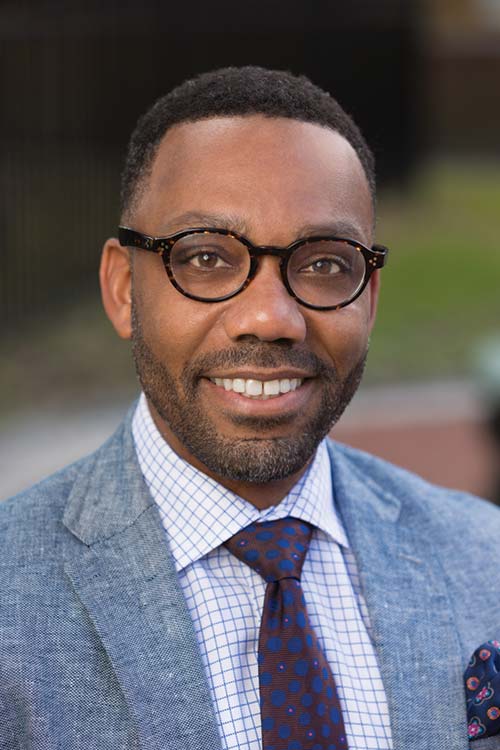
Andre Perry, David M. Rubenstein Fellow, Metropolitan Policy Program, Brookings Institution, focuses his research on race and structural inequality, education, and economic inclusion.
“I’ve been going from neighborhood to neighborhood and institution to institution, surveying the city of Birmingham for what I consider assets, and it’s clear to me that there are talented people doing great things, but they’re just not receiving investment … Alabama has more HBCUs than any state, and a third of HBCU graduates have either a STEM or business degree. They are producing phenomenal numbers. If the number of black-owned firms were proportionate to the percentage of college-educated residents who are black, there would be 720 more businesses in Birmingham. What that tells me is, in my opinion, HBCUs and black people are devalued. You don’t see the conversion of talent into business.
“Only 3% — a measly 135 trade sector firms — are black-owned in the Birmingham metro area. Yet the HBCUs are producing over 4,400 graduates a year in proximity. There is a reservoir of talent in the area. If only 3% of a majority-white city’s businesses receiving significant capital were white, there would be mutiny. But we don’t flinch when it’s black or brown people, or our institutions, not receiving investment.
"We’re starting to develop the infrastructure that can nurture leadership in inclusive economies, but that’s no substitute for dropping coin.”
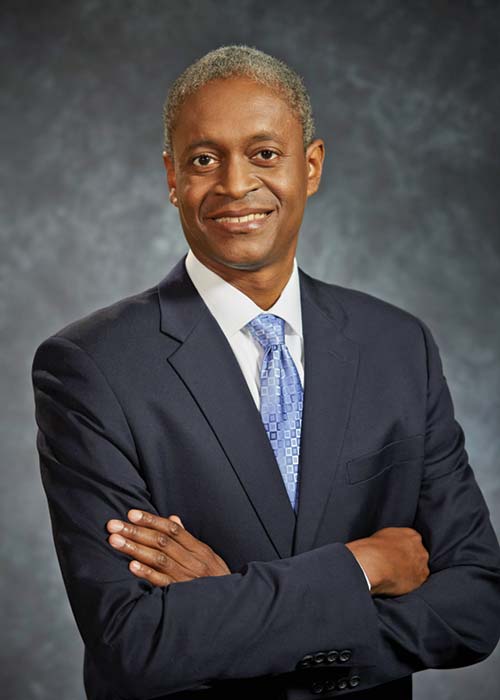
Dr. Raphael W. Bostic has served since 2017 as the 15th president and CEO of the Federal Reserve Bank of Atlanta, coming from academic posts in real estate, public policy, planning and development at the University of Southern California, and from an assistant secretary position at the U.S. Department of Housing and Urban Development (HUD).
"We are continually being approached by local officials to talk about economic development. The team here is actively trying to get in front of policymakers throughout the Sixth District — I was in Meridian, Mississippi, and I was in Muscle Shoals, Alabama. At least one or two sessions I’ve had have been about ‘What can we do as a local community to be better connected to our workforce, be better employers and get capital invested in an inclusive way?’ I can speak for Atlanta and a couple other places: The business community is really starting to appreciate there are resources that have been left on the table, and not fully capitalized on to help places be more resilient and innovative.
"One thing to be sensitive to is the risk of displacement. As these places develop and become more connected, make sure the forces of the economy don’t cause folks who have been in these neighborhoods for a long time to no longer be there. Have guardrails to prevent mass dislocation of people who have been the pillars of those communities."

David Hall, a graduate of Morehouse College in Atlanta, is a partner at Rise of the Rest (ROTR) Seed Fund, responsible for investment sourcing, execution, and oversight for portfolio companies at Revolution, the company launched by AOL Founder Steve Case to promote startup ecosystems in places other than the coastal meccas of the Bay Area, Boston and New York. Among other projects, the organization convenes regional Rise of the Rest bus tours, visiting five cities in five days and investing at least $500,000 in local startups through pitch competitions.
“It takes six to nine months to organize and plan a tour. There are a lot of meetings with teams in these cities … It usually happens very organically, and we go down to the first meeting, and it’s a room full of white guys. Usually it’s, ‘Hang on a second, guys, this can’t be it.’ If it’s not it, we need a bigger table, a bigger space, until the room looks like the demographics of the city or the greater region. That is our first way of being more purposeful about inclusion and making sure lots of different voices are heard.
“It’s often not as sexy as the Stanford grad in San Francisco who leaves their Deloitte job. One person I met is mixing chemicals in her garage for her beauty brand. It’s a different narrative than what we hear so often in Silicon Valley. In Miami, the tag line is it’s a city built by immigrants and led by women. The number of Latinx and African American women who had significant leadership positions was really powerful.
“We were on the bus in Atlanta, and one of the leaders of the tour was there with a leader of one of the prominent African American communities. I asked, ‘How often do you guys get together? There seems to be a great overlap.’ And they said, ‘We don’t know each other.’ It was unbelievable to us that two of the big ecosystem organization leaders didn’t even know each other. Bringing these communities together was really powerful. In Columbus, Ohio, we had a roundtable where we were talking about equity and inclusion in the startup ecosystem. A white guy who ran a company said, ‘How do we work to include diverse voices?’ There was a four- or five-second beat of silence, and a black guy said, ‘You invite us.’ I think there’s some obviously low-hanging fruit.
“But to be honest, there are other factors. There is another sort of challenge, because we now have a class of technologists of color who can start and build companies that aren’t just beauty brands. They have gone to Stanford, worked at Google, but the bias they face in fundraising is extreme. Jewel Burks and Jason Crain were the co-founders at one of our companies, PartPick. She went to Georgia Tech, then went to Howard. Jason went to Morehouse and then Georgia Tech. They came together in 2014 to build a company using the camera in your phone to take a picture of, say, a screw, and you can then go buy it at Home Depot. She pitched that company hundreds of times to hundreds of investors. The feedback ranged from patently offensive — “This is your product? Did you actually create it?’ — to dismissive. If you made the ethnicity of the founder ambiguous, you would see a straight line. It was well beyond questions typical entrepreneurs get, and it crossed the line. Those are the best, and if they get the runaround, it’s hard to see what the average person is able to do. Until circumstances like that evolve, there’s still work to do.”
“It’s unbelievable to me that people with political and financial capital continuously trip up on understanding the value of how diversity wins. We’ve seen it in our portfolio — [the value of] different lived experiences. It’s about looking at the bigger world, and understanding that what that black girl growing up in Birmingham understands, sees and reads is as valuable as understanding the East Side of Manhattan and Silicon Valley.”
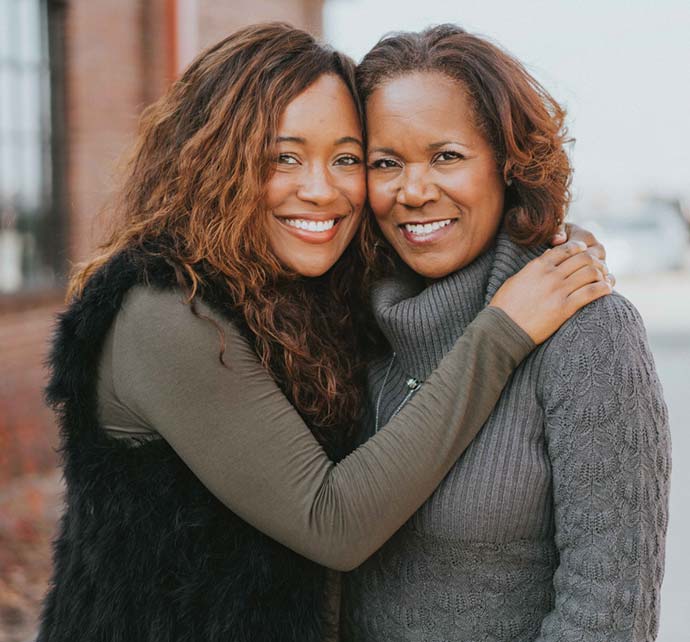
Ashlee Ammons is co-founder (with her mother Kerry Schrader) of Mixtroz, a company that specializes in apps to facilitate engagement and connection at conferences and other events. After joining the Velocity Accelerator in Birmingham in 2018, they were selected to pitch to AOL Co-Founder Steve Case during the Rise of the Rest tour stop in Birmingham, and secured a $100,000 investment from Case’s Revolution Fund. The team went on to close a $1 million round of funding, making them only the 37th and 38th black females to ever close a million-dollar round.
"People would walk up to my Mom at conferences and say, ‘Can you get me a gin and tonic?’ That kept happening, so we’d wear these t-shirts saying, ‘Black Female Founder: Fund Me’ on the front and ‘Got Seed?’ on the back. There’s a lot of old money sitting here in Birmingham that is untapped. Once we figured out the resources are here, it was a matter of connecting the dots to get it done.
"I need more people to see the Kerrys and Ashlees. That is part of my job now. If I’m asked to speak at an elementary school or high school, without question I’m going. They need to see a brown person who looks like them doing this. They need to understand this is in the realm of possibility. It’s not going to easy. But our closest example can’t be Oprah. You need something closer to home than that.
"I’m a single, 31-year-old black female. One thing giving me pause that would make me think about leaving Alabama would be legislation limiting female reproductive rights. It’s detrimental. That kills the opportunity to bring talent here. I just got shoes made — one says ‘Roe’ and the other says ‘Wade.’ I don’t want anyone confused about my stance."
"At Freedom Fest this week, I’m on a panel at 16th Street Baptist Church, where four little black girls were bombed for no reason, and now I’m sitting here having raised a million dollars in Birmingham. That is not lost on me."
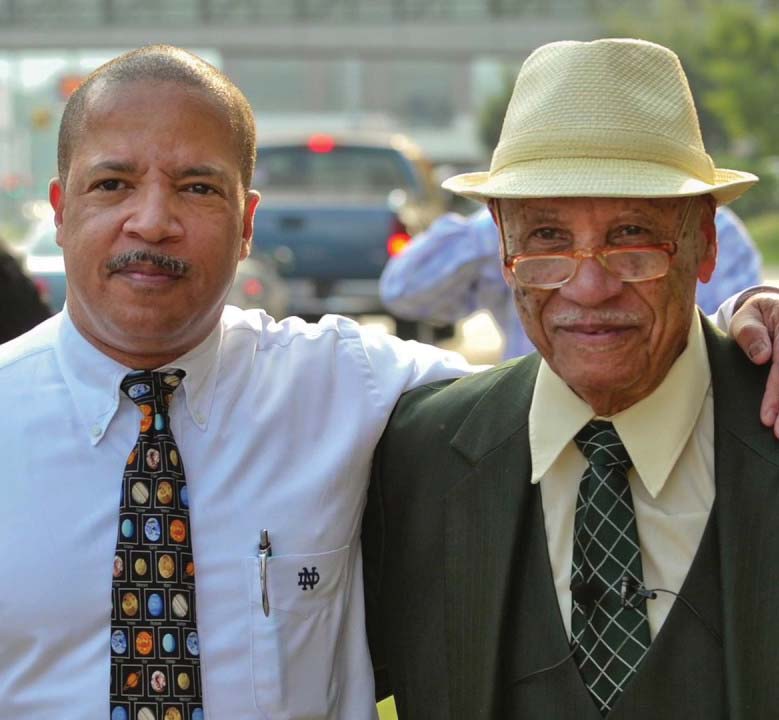
Sonnie Hereford IV was the first to integrate Alabama public schools in September 1963 at the age of six. Today he is a systems engineer for Insight Global, a subsidiary of Northrop Grumman, and the school he integrated is named after him and his father, a Huntsville native who became a doctor in 1956 and helped integrate all manner of commercial establishments.
"We had Redstone Arsenal and NASA here, with federal dollars being spent, but they didn’t have to be. The civil rights organizers used that as leverage to convince city leaders they should get in line. My father brought a lawsuit to have me attend school. If you were black, you almost certainly worked for someone who was white, and you were seen as a troublemaker, not a freedom fighter [if you were involved in civil rights]. There were 27 families, but by the time the integration happened, it was down to four as a result of threats and intimidation. My Dad has said there was a lot of yelling and screaming and protestors. We should have integrated on September 3rd, but Governor George Wallace kept the schools closed that were going to integrate. Monday was Labor Day, and he kept them closed Tuesday through Friday. From what I understand, the local leaders including from Marshall Air Force Base and Redstone communicated to him, ‘We need to let this happen.’ In 2013, my father and I re-enacted the walk from 1963.
"I think Huntsville is a very favorable place for any type of technical business for some of the same reasons we were able to integrate here. I’m guessing the average education level is higher than anywhere else in the United States. There is a good cross-section of people from the rest of the country, which helps to dilute some of the other less desirable types of Southern culture."
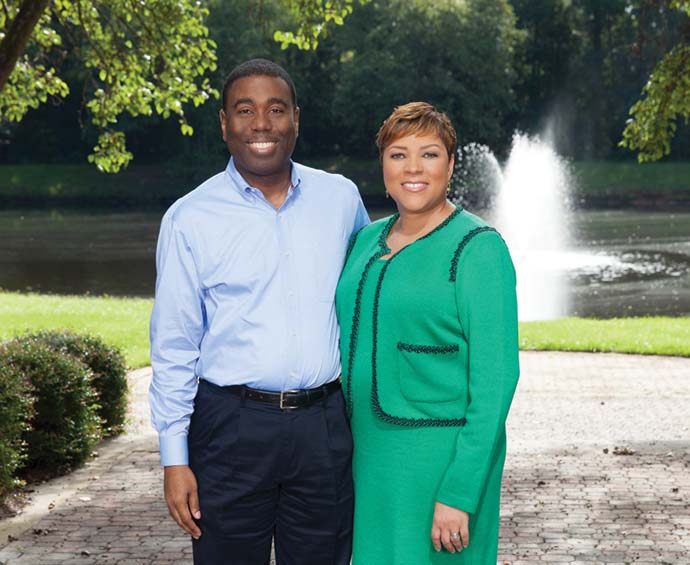
Kimberly Caudle Lewis and her husband Larry Lewis are small business owners in Huntsville, Alabama, where they lead ProjectXYZ, a government contractor. Kim Lewis was recently chosen as the first African-American woman to chair the board of the Huntsville/Madison County Chamber of Commerce. They are also active in the BizTech incubator, where Larry Lewis took over as CEO three years ago. It will oversee a new coworking space called Innovate Huntsville. Later this year he plans to launch Creekwater Capital, a seed and investment firm. The Lewises also just opened a new downtown restaurant in Larry’s Muscle Shoals-area hometown of Tuscumbia called Superhero Chefs, featuring Louisville-based celebrity chef Darnell Ferguson.
Larry Lewis: "The whole reason I came here was I told my Mom I wanted to own a building in downtown Tuscumbia, simply because African-Americans don’t own buildings. She remembers she couldn’t go next door and get an ice cream cone. This is a small town, and there are very few African American businesses down here. We bought the theater across the street too, which still had its [former] ‘colored’ entrance door. I was wondering what kind of reception we’d get, but the city has embraced us.”
Kim Lewis: "This restaurant has been an economic driver for downtown. The restaurant next door says when we’re at capacity, people will go over and get an ice cream cone while waiting to get in here. The African American community here has embraced us. You’ll see a diverse crowd in the restaurant, and a lot of people have come up personally to thank us.
"I’ve been concentrating on workforce as chairman. We know we have a workforce issue to resolve. We’ve recruited the high-tech jobs, but there’s a middle-class vacancy. Huntsville has done a very good job of doing things to get employees here, but some areas still have a divide."
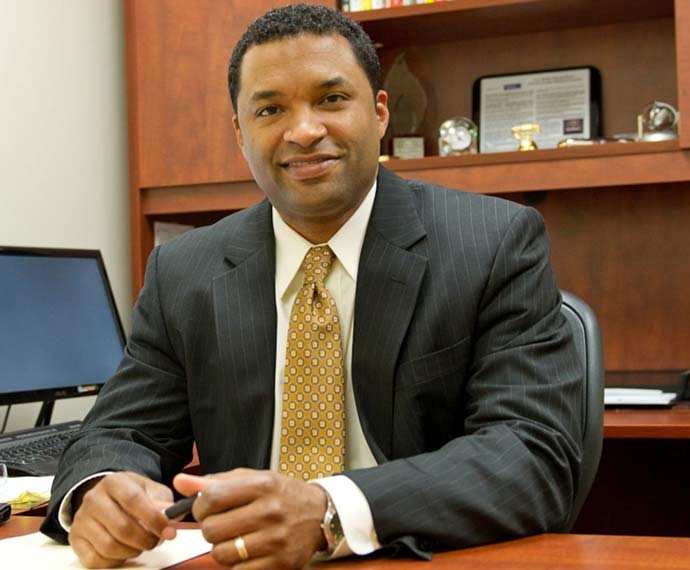
Delmonize “Del” Smith is dean, College of Business & Public Affairs and executive director for economic development at Alabama A&M University in Huntsville. The creator of the Institute for Urban Entrepreneurship in Rochester, New York, he also is helming his third startup, Acclinate Genetics, the only African American-led enterprise located at the dynamic Hudson Alpha Institute.
"Taking comparable companies in the same industry and starting time, I was looking at revenue numbers of black-owned businesses vs. white owned businesses: In 2008, for every dollar that a white-owned firm made, a black-owned firm made 59 cents. Four years later: 56 cents. Then 54 cents. Last time I checked the data, it was 52 cents. Is it that white-owned firms are getting more revenues and being more efficient, or are black-owned firms seeing more challenges? You cannot say it’s getting better.
"A&M is very much an anchor institution for North Huntsville. We control a vast amount of resources, human and financial capita. If that is deployed correctly, it will benefit the community as well as the university. Part of what we are doing is talking to the market to say we have unique assets in terms of student and staff population and the money we spend. If you’re going to locate an economically viable entity here such as a hotel or restaurant, we can help you be successful in your outcomes. A lot of times HBCUs have not been at the table for those discussions."
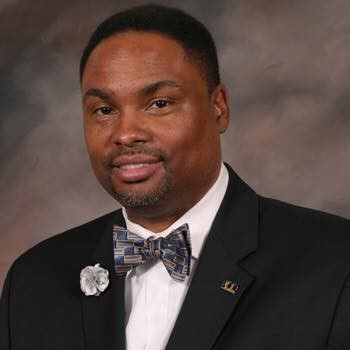
Montgomery Airport Authority Director Marshall Taggart just took the post this year after heading DeKalb Peachtree Airport in Atlanta.
"Every morning I wake up and I see that capitol that once was where the Confederate States of America met to secede from the Union. Then I see Dexter Avenue Baptist church. Then I come out to Monroe Street, where African Americans had their businesses and black people had to enter from the back. In the quarter down the street, slaves were paraded up and down. And here I am with the opportunity to really make a difference for this community. Now I’m a page in the history book.
"We’re poised to really grow and blossom as the next emerging, cutting-edge city that will really move the needle of this aspect where people are migrating back from the Rust Belt to the Sun Belt. I am the first African American airport director, and there are candidates in the race that may end up being the first African American mayor. Why does it matter? It completes that dream.”
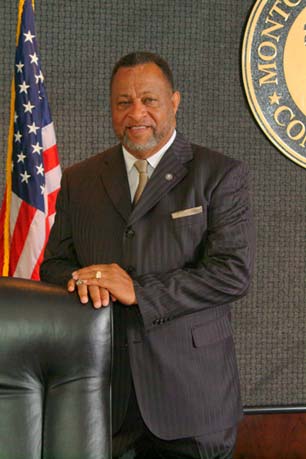
Ten of the 12 candidates running for mayor of Montgomery, Alabama, are African American, including longtime Montgomery County Commission Chairman Elton Dean, who was among those who took part in the historic Selma-to-Montgomery civil rights march in 1965. (Steven Reed, a supporter of LGBTQ rights and marriage equality who already was the county’s first black probate judge, won the election on Oct. 8, becoming Montgomery’s first black mayor in the 200 years since its founding.)
"In 1965, I was in the 10th grade, and we had a principal who called us all into the auditorium and told us, ‘Hey, if you join the march, I might lose my job.’ But we had some spotters who let us know when the march was coming, and we joined from St. Jude down to the capitol. The mayor [Todd Strange] and I did part of it again in 2015.
"We have a lot of young people. We understand the young minds are in the direction we need to go. A lot of people haven’t adapted to that. Montgomery is a beautiful place, where the seeds have been planted, but not harvested. Now it’s harvesting time."
